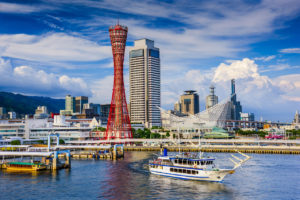Immigration update for the AMER and APAC regions
Americas
Peru: New Supreme Decree changes regulations of the current immigration Law
On July 4, 2021, Supreme Decree No. 006-2021-IN was published, approving the Administrative Procedures (TUPA) single text and has come into effect on July 9, 2021. This supersedes the previous TUPA published in 2016.
Broad changes include adding new requirements on various residence permit applications, such as criminal and police records from one’s country of origin and of residence for a period of five years before arrival in the Peruvian territory and presentation of an affidavit showing no criminal background through police and judicial records in Peru and abroad.
The decree also created two new types of permits
- Temporal Migratory Card – CTM: an extraordinary work permit and the special permit to sign documents.
- Extraordinary work permit: authorization for a foreign person to carry out income-generating activities in a subordinate or independent manner for up to a period of 30 calendar days.
Immigration applications are subject to the so-called ”negative administrative silence”. If approval is not published after the maximum period set for the issuance of the relevant immigration request, it is understood that the application has been denied. On the other hand, ”positive administrative” silence will be applied to specific other immigration procedures – in case the resolution is not issued, those must be understood as approved.
Also, the new Law has implemented stricter eligibility criteria for Mercosur applicants, where they will need to submit proof of citizenship via apostilled/legalized birth or citizenship certificates and not anymore by merely presenting their passports.
This summary was prepared using information obtained from the Publicacion Oficial – Diario Oficial El Peruano (in Spanish).
Disclaimer: The above information is provided for general information purposes only and should not be construed as legal advice. If you have any further inquiries regarding the applicability of this information, please contact Rafael Pavanelli, Regional Immigration Manager – Americas/ Client Services Manager.
Asia-Pacific
Japan: State of emergency – extension
Due to the increasing number of cases, the Japanese government has decided to extend the period of the state of emergency until August 31, 2021, in Chiba, Kanagawa, Osaka, Okinawa, Saitama and Tokyo.
The government also extended the priority preventive measures in Fukuoka, Hokkaido, Hyogo, Ishikawa and Kyoto until August 31, 2021.
All conditions listed below remain suspended for the time being, as per current border control measures in Japan. In other words, without exceptional circumstances, any Japanese visas won’t be issued, and the foreign nationals will be subject to denial of landing.
- The framework of Business Track and Residence Track (CoE holders limited).
- Entry into Japan from all countries and regions (CoE holders limited).
- The framework which enables businesspersons residing in Japan to conduct limited business activities upon their return/ re-entry into Japan after short-term business trips (for Japanese and expats residing in Japan with Japanese Residence Card).
This summary was prepared using information obtained from the Cabinet Secretariat.
India: International flight ban – extension
Due to the surge of Covid-19 in India, the Indian government has extended the international flight ban until August 31, 2021. This doesn’t apply to international all-cargo operations and flights approved by the Directorate General of Civil Aviation (DGCA).
This summary was prepared using information obtained from the Hindustan Times.
Indonesia: New regulation
The Ministry of Law and Human Rights has released new regulation number 27 of 2021 concerning restrictions on foreigners entering Indonesia during the enforcement period of emergency PPKM. This regulation replaces the Law and Human Rights Minister regulation number 26 of 2020 regarding visas and residence permits in the adaptation period of new habits.
In this new regulation, all foreign nationals are prohibited from entering Indonesia during the National Lockdown (Emergency PPKM), except for the following:
- Holders of Diplomatic and Official Visa.
- Holders of Diplomatic and Official Residence Permit.
- Holders of Temporary Stay Permits (ITAS) and Permanent Stay Permit (ITAP).
- Those with medical purpose and humanitarian reasons who were approved by an official letter from the competent authorities in handling the Covid-19 outbreak.
- Active crew members who arrive by their transports.
Thus, foreign workers who previously came as part of a national strategic project or for reasons of family union can no longer enter Indonesia as regulated in this regulation. The expansion of restrictions on foreigners entering Indonesia is carried out to suppress the spread of COVID-19.
As referred to in the regulation, foreigners who enter for health and humanitarian purposes must also first obtain a recommendation from the ministry or institution that carries out the function of handling Covid-19.
This summary was prepared using information obtained from the Ministry of Law and Human Rights (in Indonesian).
Singapore: Entry and quarantine requirements
Travelers entering Singapore from August 2, with travel history in the past 21 days to Australia (applicable to all states) before departure to Singapore, will be subjected to a 14-days Stay-Home Notice (SHN) at dedicated SHN facilities. Travelers will be allowed to apply to opt-out of dedicated SHN facilities before arrival and serve their 14-day SHN at their place of residence if they:
- Traveled only to Australia in the last 21 days before entering Singapore.
- Are occupying their place of residence on their own or only with household members who are also persons serving SHN with the same travel history and duration of SHN.
Travelers will be required to present a valid negative Covid-19 Polymerase Chain Reaction (PCR) test taken within 72 hours before departure. In addition to the 14-days SHN, travelers will be subjected to the following tests:
- On-arrival PCR test and PCR test on Day 14 of SHN.
- Self-administered Antigen Rapid test (ART) on days 3, 7 and 11 of arrival.
Effective August 2, arrivals with travel history to Jiangsu province, China, within the last 21 days before departure to Singapore, will be subject to an on-arrival COVID-19 PCR test, a 7-day SHN at their place of residence and a COVID-19 test before the end of the SHN period. This applies to IPA Holders, Long Term Pass holders, Permanent Residents and Singapore Citizens.
Short-term and business travelers issued with Air Travel Pass (ATP) who have been in Jiangsu province, China, in the last 21 days before departure will be banned from entry.
All other travelers departing from Mainland China (excluding Jiangsu province) in the last 21 days prior to travel will continue to be subject to the existing requirements:
- COVID-19 test upon arrival at the airport
- self-isolate for one or two days at the place of residence while waiting test outcome.
This summary was prepared using information obtained from the Ministry of Health.
Disclaimer: The above information is provided for general information purposes only and should not be construed as legal advice. If you have any further inquiries regarding the applicability of this information, please contact Debra Jane Beynon, Regional Immigration Manager (APAC).
We track policy changes in over 120 countries. Find out how we can help you in this short video.




